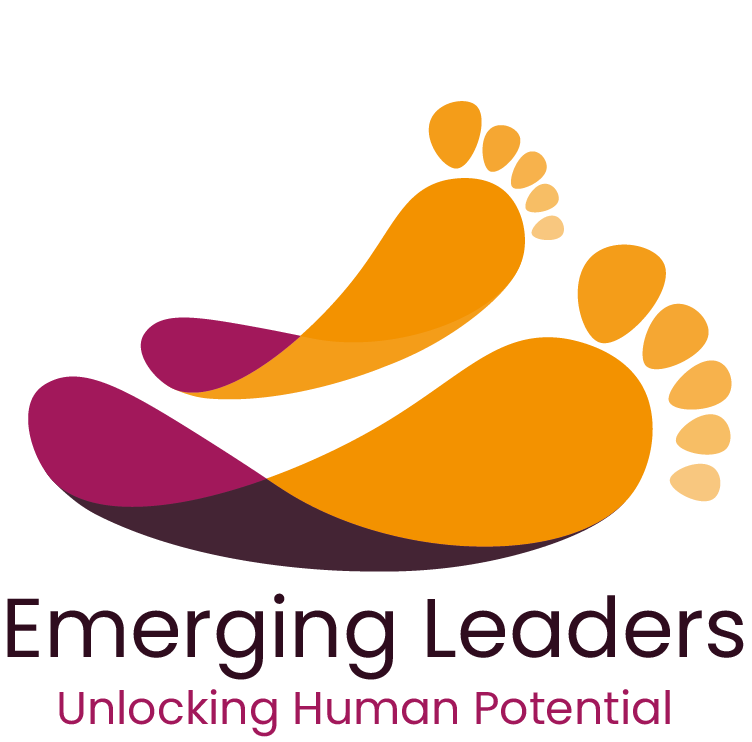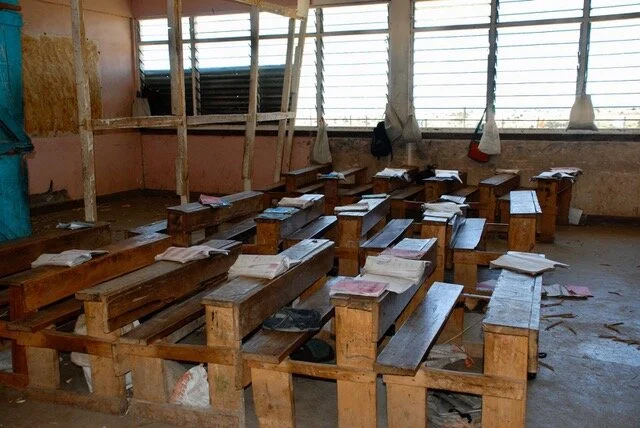A closer look at the LEAD NOW Programme
Rwanda: a Case Story
In 2019 a story began to be written amongst 300 teachers in the Northern Province of Rwanda. Teachers from primary and secondary schools, head teachers and school inspectors, all attended a 5-day training at 3 training camps using the Emerging Leaders education programme: LEAD NOW.
LEAD NOW was created to invest in the leadership health and well-being of educators, as well as being a programme that can be easily used by parents and community workers – all those, in fact, who work with or have access to teaching and influencing young people.
In this Rwanda story the programme had 2 primary aims:
1. To grow the personal leadership potential of 300 teachers;
2. To equip these educators with the skills to share the primary principles of good leadership with their students, by setting up and running Leadership Clubs in their schools, using the 12 lessons provided.
In discussion with the teachers at the start of the training, they spoke about the challenges and difficulties they faced each day at school. They spoke about poor attendance by the pupils, lack of basic resources and equipment, as well as poor sanitation and little access to clean water:
80% of teachers expressed their struggle to get the parents of their children involved in, or supportive of, their child’s education;
70% mentioned poor school infrastructure (sanitation, clean water, electricity, desks & chairs); and
45% spoke about overcrowding in their classrooms - sometimes as many as 120 pupils in a class - which meant running a split-shift teaching day (separate morning and afternoon groups).
The students themselves also faced their own unique and pressing challenges, which hampered their ability to focus on their lessons and threatened their ability to thrive. One group of head teachers suggested that at least 70% of children came to school without breakfast, giving them a hungry start to their day, not to mention distraction and distress:
• 87% - Poor support and encouragement from home;
• 55% - Poor living conditions and general deprivation;
• 42% - Suffer overcrowding in classes which prevents them from learning.
Other issues:
• 15% - Difficulty in travelling to and from school;
• 18% - Suffer family conflicts and violence.
These are statistics gathered from the teachers who attended and give some sense of the challenges faced by teachers and their students alike. They are certainly not unique to Rwanda.
As the week-long training progresses, the teachers learn what it means to take their own leadership seriously:
- They reconnect, or discover for the first time, that they have amazing potential; this builds self-esteem and awakens their own self-belief;
- They look closely at the need for good heart and character and what needs to change in their own lives, to pull out the ‘weeds’ of bad character;
- They learn about the negative mindsets that have kept their potential limited;
- They discover how strong, effective leaders think and how they too can learn to think differently;
- They learn financial management and how to lead their money, rather than letting their money lead them (into debt);
- They set a vision/goal/direction for their lives and learn how to problem solve using a tool called, The 5 Stages;
- They learn how to set up a Leadership Club for their school and how to set up a small income generating business to support their meagre salary. Some also plan social projects for their communities: planting trees, setting up recycling systems, repairing roads, building safer pathways for the children to walk to school.
Teachers leave the training ready to lead themselves, their finances, their classrooms, and all aspects of their daily lives with more purpose, conviction and focus. After 2 week these teachers reported…
o “I have changed how I use my money” - Mukawera Marie Claudine
o “My poverty mindsets kept telling me that as a teacher I will always be poor, but now I see I don't have to think that way” - Hosiana Iyatumyavuka
o “I am saving my money every day and have already saved RWF4,000 in 2 weeks. I am focusing on what is important. I know now how to manage my time” - Byukusenge Carine
o “I was selfish before, but now I have led myself to think differently and have changed” - Ntirubabarira Marc
o “Students and teachers are now respecting time. I can see that 90% come to school on time, before it was a different story” G.S.Shagasha school
Central to the training, and the ethos of Emerging Leaders - is the need for mindset change, because without mindset change, old stories stay the same: the mismanagement of money, poor timekeeping, hopeless thinking, unkind and abusive behaviour towards students, schools without vision, not problem solving through focused leadership. Under good leadership, great things happen and situations that felt hopeless start to transform. Under effective leadership challenging problems that previously felt like impossibly high walls, are faced, scaled and surmounted. Issues of poor school attendance, hungry children and overcrowding take leadership to solve, but leadership is like a muscle, it needs exercising every day.
In Kenya, a school that adopted the LEAD NOW training were faced with all the problems named above. Hungry children were skipping out of school at lunchtime in search of food and not returning. Undisciplined behaviour and low exam performance had put them at the bottom of the school league table in the area and no discerning parent wanted to send their child there. So, after their training all the teachers got together, using the 5 Stages (a LEAD NOW problem solving tool), they created an action plan to address these glaring issues. And this, in brief, is what they did:
· They decided first that they had to address the ‘hunger issue’. So, they converted an old classroom into a kitchen, planted a vegetable garden the size of a football pitch (involving all the children). Lobbied the Agriculture minister for seeds. Enlisted 5 volunteer parents as cooks. Got the children involved in gardening. Started a lunch feeding programme and got every child who could, to pay a small contribution. They also enlisted a few businesspeople in the area to sponsor the lunch feeding programme;
· They decided they wanted a library (the school has never had a library). So, they researched all the NGO organisations who specialized in finding books for schools in Kenya and made contact with them. The teachers spoke to everyone they knew and publicised their Library Project. They partnered with local people too and slowly the books started to be donated to create their first every school library. The staff and children were delighted and very proud of their books.
These two major projects themselves had a massive impact on the children and the staff. The children, now fed, stayed in school, the children who had been skipping school now came to school because they knew they would get fed. Children got involved in problem solving, tending to, and managing the garden. The children had greater energy to play football, have fun and study better. By the end of the year the school had climbed up the academic school league from low 38th place to 4th and a school of 450 pupils was looking at being over subscribed for the new year with over 900 pupils. When the teachers started seeing themselves as leaders, who could see and take responsibility for the issues in their schools they started addressing the numerous challenges around the school, from broken desks, to building eco-toilets and finding a way to get electricity to most of the classrooms by the end of the second year.
“Leadership is the ability to create a story that affects the thoughts, feelings and actions of others”
– Howard Gardner (Harvard)
Our lives are a story, written every day. Everyone who attends the LEAD NOW programme is asked, “What story do you want to write for your life?” “What story are you writing in your class and in your school... because it will affect the thoughts, the feelings and actions of every child?”
Leaders take up their pen, discover their life-story and then write… and every teacher is writing a story in their classroom.
The LEAD NOW programme seeks to equip everyone who attends with the motivation, mindsets and skills to LEAD themselves and their pupils to a thriving future. By the end of the LEAD NOW training, educators head back to their schools, equipped with a plan to set up and run a leadership club for both upper primary and secondary children (10 – 16-year olds). 73% of the Rwandan teachers trained have started a Leadership club. Some of their schools shared the programme with surrounding schools who did not attend the original training, as well as providing peer to peer support between schools facing challenges. The teachers surveyed shared how they were using the training:
• I have embedded the training into morning assembly times for the whole school.
• I use the training in my lessons on a daily basis, especially telling the students about their amazing potential.
• We started a Leadership Club immediately with 82 members and the students have responded very well to the teaching.
• I have helped my students to see how their limiting mindsets will keep their potential small and effect their performance in life.
• I have been using the training with my staff and they are more confident and happier because I have shown them that they are leaders and now we are working better as a team.
This story is set to grow as the Leadership Clubs reach more and more children and they benefit, firstly from learning leadership principles while young, and secondly, from the transformation they witness in their teachers, who are stepping up their professional performance and becoming the best that they can be. This will result in a much-improved classroom experience for the children and will raise standards and leadership throughout the schools.
Strong, effective and courageous leaders enable individuals, communities and ultimately nations and become the best that they can be.
